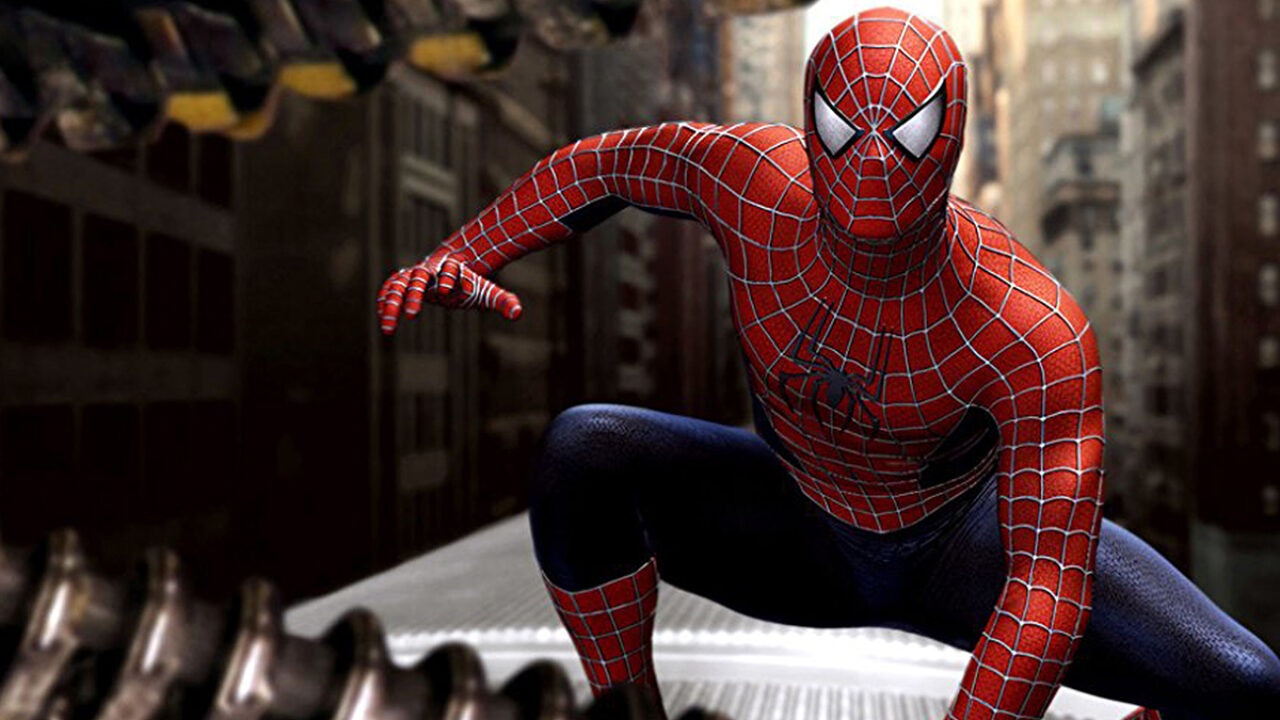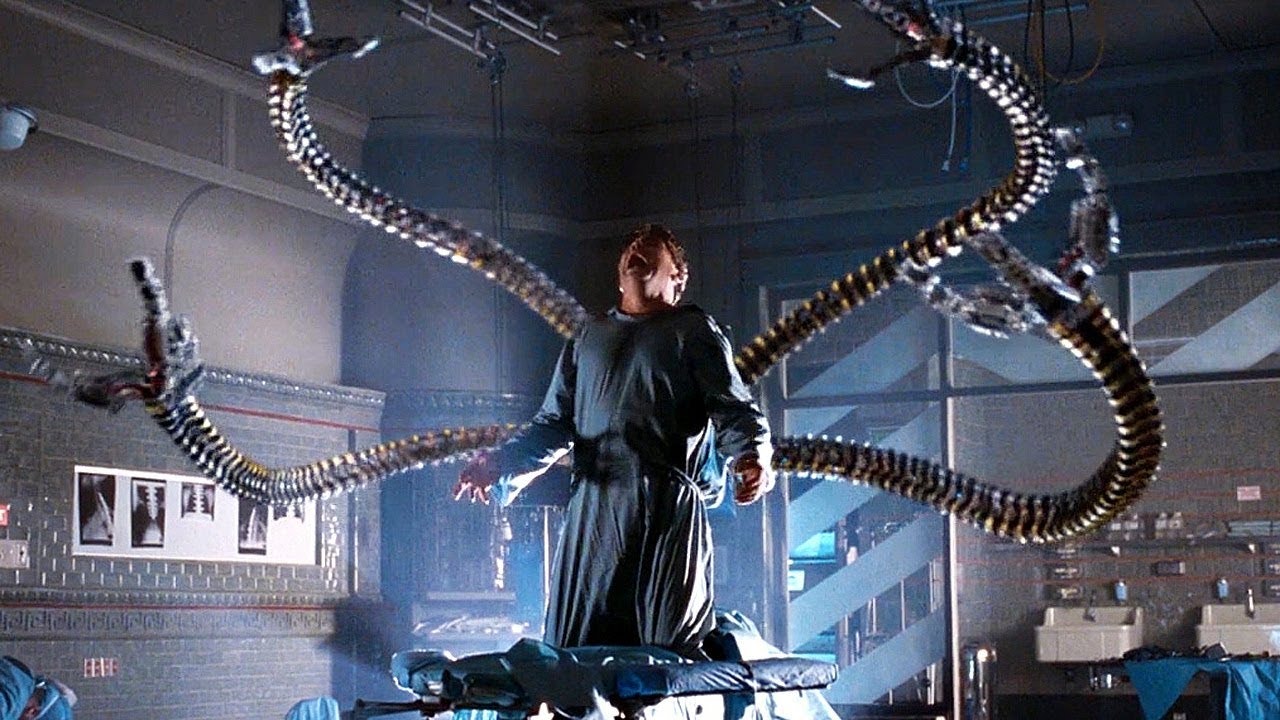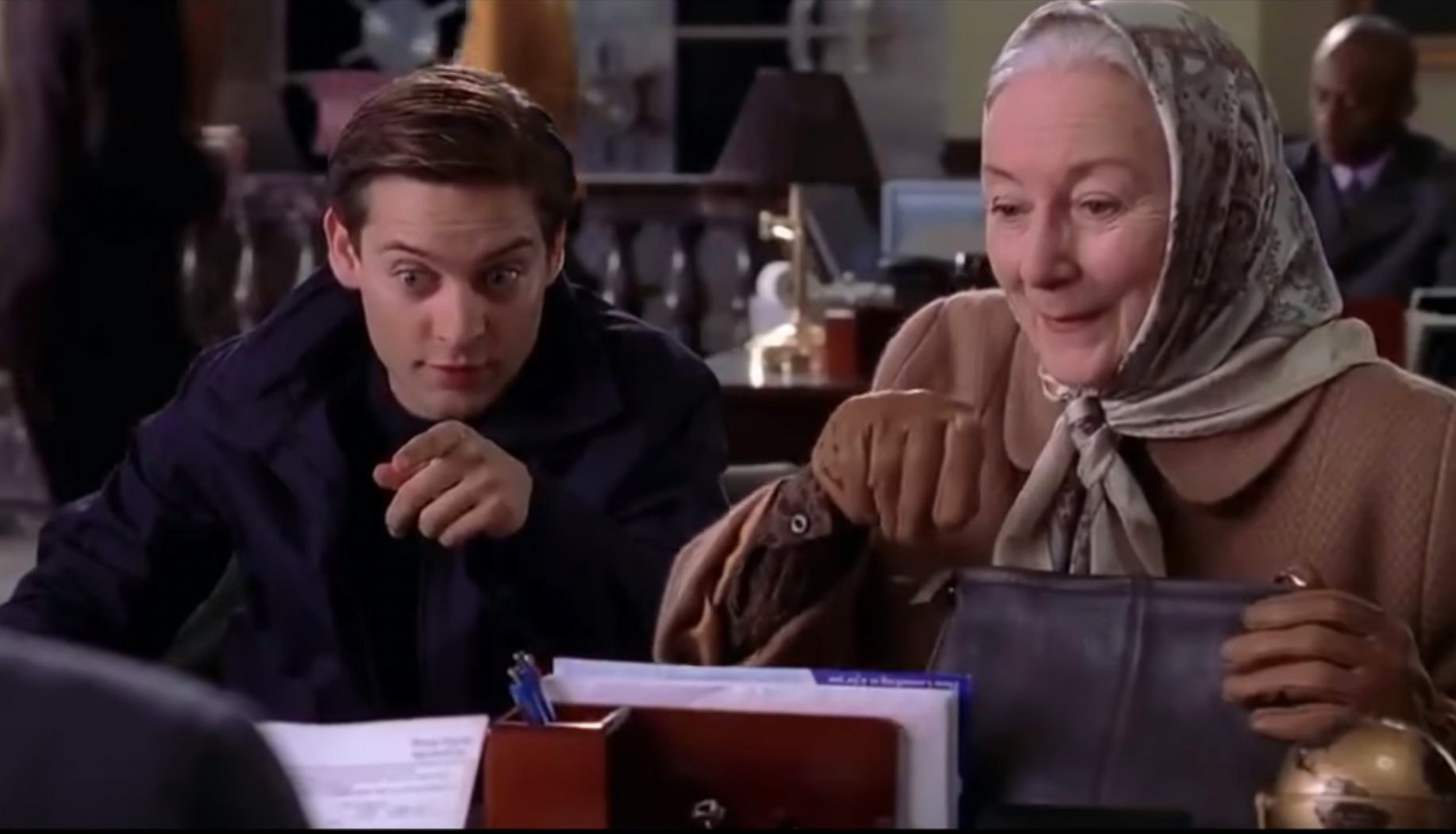
It’s been 15 years since Iron Man’s first flight kicked off the MCU, and despite the fact the success of the franchise has permanently endeared pop culture to previously B-list characters such as Thanos, there’s still a one-word specter looming over the entire lucrative operation: fatigue.
Although the current landscape feels like the Golden Age of Superheroes comic book fans once dreamed of, more and more people are talking about the oversaturation of the genre, and for good reason — each billion-dollar profit feels increasingly rushed. On top of this, the predominant voice in the MCU is one of incessant self-awareness, driven by a need to preempt any sincerity with a healthy dose of snark.
Now, rewind the clock by 19 years. The superhero genre isn’t new, but it’s nowhere as popular as it is now. For a superhero film to take off, it needed to be bolstered by the strength of its craftsmanship and the passion of the filmmaker involved, which is precisely what Sony got when they hired Sam Raimi to direct 2002’s immensely successful Spider-Man.
Even though the first film resonated with audiences, there was no guarantee that Raimi would be able to succeed twice, which is what made it so spectacular when he cleared his own bar. Nearly two decades later, Spider-Man 2 is still the crown jewel of both the superhero film and the summer blockbuster, an exhilarating sequel that swings high and delivers awe-inspiring spectacle wrapped in the contours of a beautiful melodrama.
Long before bringing one of fiction’s most beloved heroes to life, Raimi’s films sizzled with the stylistic flexibility necessary to make Spidey captivating on-screen. The Evil Dead and Darkman were early displays of his ability to make the unbelievable feel weighty, and that quality is on full display in Spider-Man 2. With a plot that sees Peter Parker (Tobey Maguire) juggling the apparent loss of his powers with a self-destructive rampage by the four-armed Doctor Octopus (Alfred Molina), there are a million ways it could have been a hokey trainwreck. Instead, Raimi’s strong understanding of tone gives the movie an earnest atmosphere. There’s no self-deprecating humor poking fun at the absurdity of comic book storytelling; there’s only the power of Alvin Sargent’s script and the vision of Raimi’s directing ensuring every moment feels grounded in reality.
A crucial aspect of that believability is the dynamic camerawork of veteran cinematographer Bill Pope. While recent MCU releases have been criticized for their static visual language, Pope’s camera is constantly in motion, accentuating the action and emphasizing the kineticism of superhero spectacle. His eye for movement keeps us right there with Spider-Man as he swings through the skies of New York, and it helps sell the fluidity of the action setpieces, exemplified by the perfection that is the moving train battle between Spidey and Doc Ock.

Speaking of the tentacled villain, Spider-Man 2 completely overhauls the self-aggrandizing genius of the comics and replaces him with the tragic portrait of a compassionate man who loses everything in the pursuit of his aspirations. Alfred Molina’s performance allows Otto Octavius to be a charming mentor and loving husband before the tentacles turn him into a volatile mad scientist, which is what makes him such a remarkable antagonist. Although the scene of his “awakening” takes a brutal detour into Raimi’s home turf of horror, the film’s brilliant decision to turn Otto into a monster of circumstance allows the audience to empathize with him, and avoids making him the kind of one-note, one-off “Bad Guys” that are all too common in contemporary superhero films.
Molina’s Doc Ock isn’t the only antagonist, though; one of the best aspects of Spider-Man 2 is the consequences of Peter’s choice to be a hero, echoing through his life and alienating him from his supporting cast. His best friend, Harry Osborn (James Franco), quietly resents him for refusing to turn over Spider-Man to him. His Aunt May (Rosemary Harris) is on the verge of eviction, and struggling with the grief of losing her husband. The movie nails the legendary Parker luck that Peter’s struggled with since becoming a superhero, and having a non-powered civilian cast surround him gives the movie genuine emotional stakes.
Even though we know New York won’t be destroyed by Doc Ock’s synthetic sun, the movie still has dramatic weight because Raimi emphasizes the importance of Parker’s life just as much as Spider-Man’s heroics. Watching Peter lose job after job because of his secret identity, or seeing Aunt May burst into tears because she can only spare $20 for Peter’s birthday, remind us that there’s a crushing cost to his decision to become a hero. When his powers start to fade, we empathize with his decision to abandon the Spider-Man identity, because we all know what it’s like to yearn for something we can’t have.

Unsurprisingly, Peter’s greatest desire — his star-crossed romance with Mary Jane Watson (Kirsten Dunst) — is also the beating heart of the entire Raimi trilogy. There’s a reason their kiss in the first film remains iconic, and the same passion echoes through the sequel, as MJ is caught up in a love triangle between Peter and her soon-to-be-husband John Jameson Jr. Unlike the Michelle Jones love interest in the MCU, Dunst’s MJ is a human being with interiority and well-defined characterization, even if she becomes a tired damsel-in-distress too. We understand that she doesn’t simply love Spider-Man because he’s our hero and the plot demands it; she loves Peter because Raimi’s mastery of genre conventions provides room for their feelings to ebb and flow even as Peter realizes he has to sacrifice his aspirations for the sake of his responsibilities.
While new superhero releases come and go at the drop of a hat, Spider-Man 2 stands the test of time because it’s painfully aware of the inherent unfairness of Peter’s situation. Audiences get to see firsthand how the consequences of superheroism ripple through Peter’s life, grounding the unreal in a way we can relate to. By pitting Spider-Man against his desires and self-doubt, Raimi crafted an earnest, inspirational epic devoid of grating self-awareness that still resonates. Spider-Man 2 reaffirms the very nature of heroism by reminding us that sometimes it’s as simple as choosing to do the right thing, even if it means giving up what we want the most.
Spider-Man 2 is streaming on Netflix.







